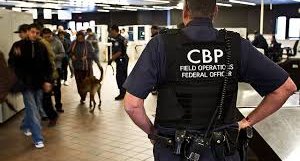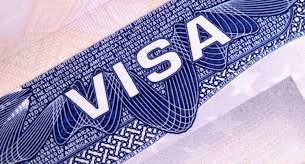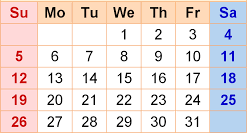by Heidi Meyers | May 8, 2017 | Articles

Openclipart, Stylized Eye
On May 4, 2017, the U.S. State Department proposed that the government now be able to request all social media information, email addresses and phone numbers of visa applicants from any and all countries, whom they choose to subject to additional scrutiny. Claiming an “emergency”, the US State Department provided less than two weeks for public comment, up to May 18, 2017. See 82 Fed.Reg. 84 (May 4, 2017).
In addition to requesting all social media information, email and phone numbers for the past five years, the US State Dept would also request information on all siblings, children, spouses, former spouses, and civil or domestic partners, and 15 years employment and residence history. The government would also request 15 years of the applicant’s travel history, including the source of funding for each trip, among other information.
The US State Department has provided the following information for those who want to comment on the proposed rule:
” • Email: oira_submission@ omb.eop.gov. You must include the DS form number (if applicable), information collection title, and OMB control number in the subject line of your message. • Fax: 202–395–5806. Attention: Desk Officer for Department of State. You may submit comments to Bureau of Consular Affairs, Visa Office by the following methods: • You may submit comments to Bureau of Consular Affairs, Visa Office by the following methods: • Web: Persons with access to the Internet may comment on this notice by going to www.Regulations.gov. You can search for the document by entering ‘‘Docket Number: DOS–2017–0019’’ in the Search field. Then click the ‘‘Comment Now’’ button and complete the comment form. • Email: PRA_BurdenComments@ state.gov. You must include Emergency Submission Comment on ‘‘Supplemental Questions for Visa Applicants’’ in the subject line of your comment.”
by Heidi Meyers | May 2, 2017 | Articles

George Orwell, 1984 book covers
You have the opportunity to comment on US Custom and Border Protection’s (CBP’s) collection of social media information on Chinese citizens with 10-year B-1 or B-2 visas. All Chinese citizens with a 10-year B-1 or B-2 visa are now required to register with CBP through the Electronic Visa Update System (EVUS). The list of questions includes “optional” questions regarding an applicant’s social media accounts and use. CBP may extend the EVUS system to citizens of other countries as well.
You have up to May 30, 2017 to comment on the following: 1) whether collection of applicants’ social media information will have “practical utility”; 2) the estimated costs and burden to the federal government; 3) how to enhance the quality and usefulness of the information collected; and 4) ways to reduce the costs and burden of their procedures. Comments should be addressed to the OMB Desk Officer for Customs and Border Protection, Department of Homeland Security, and sent via electronic mail to [email protected] or faxed to (202) 395–5806.
Millions of people coming to the U.S. from Visa Waiver Program (VWP) countries are already being asked to “volunteer” their social media information. Regarding the collection of social media information from VWP entrants, the ACLU commented in August 2017:
“The proposed expansion of the existing questionnaire would significantly increase the invasiveness of the information collected not only about foreign travelers, but also about their U. S. citizen social media contacts, and have a chilling effect on their communications. It would also increase the complexity of the visa waiver decision-making process…
The proposed change would collect social media identifiers from millions of individuals deemed least likely to have terrorist connections and would result in the collection of personal information on the tens of millions of social media contacts of those individuals, many of whom would be U. S. citizens or residents…”
This will make the decision to admit someone to the US highly subjective and subject to abusive behavior on the part of CBP officers, not to mention the enormous waste of resources on checking people’s Facebook and other social media accounts. People with B-1 or B-2 visas have already been subjected to extensive security checks and have been found not to be a security risk. As pointed out by Jeff John Roberts in Fortune on December 23, 2016, “would-be terrorists, even dim-witted ones, would be unlikely to disclose their social media profile to the U.S. government.”
by Heidi Meyers | Apr 22, 2017 | Articles

University of Maryland Eastern Shore
On April 18, 2017, President Trump signed an Executive Order (EO) entitled “Buy American and Hire American”, stating that it will be U.S. government policy to “rigorously enforce and administer the laws governing entry into the United States of workers from abroad”, as well as “to maximize…through terms and conditions of Federal financial assistance awards and Federal procurements, the use of goods, products, and materials produced in the United States”. The EO is very short, and while it speaks in broad, sweeping terms, it does not provide any specifics of how this will be implemented. Instead, it requests federal agencies, including the U.S. Department of Labor, the U.S. Department of Justice, the Department of State, and the Department of Homeland Security, to propose new federal rules to protect U.S. workers and to root out fraud and abuse in the immigration system. It specifically singles out the H-1B program and calls on federal agencies to “suggest reforms to help ensure that H–1B visas are awarded to the most-skilled or highest-paid petition beneficiaries.”
However, it does not create any immediate legal changes to the H-1B program or to other work visa categories. This would take time, as after making reports to the President, the federal agencies would have to go through the rule-making process whereby they would draft and publish new proposed rules, and allow the public time to respond before issuing a final rule. Or, Congress would have to pass a new law changing the process.
On the other hand, President Trump’s new EO contributes to the negative rhetoric targeted at immigrants, and fails to recognize the valuable contributions that immigrants make to our economy and to creating jobs for US workers. It fails to acknowledge that most H-1Bs are for foreign workers to fill positions for occupations for which there is a shortage of US workers. The federal government has already acknowledged that there is a shortage of American workers to fill positions in the STEM (Science, Technology, Engineering and Math) fields, and its legislation reflects that. It is better to have a highly-skilled foreign worker come to the US with his or her family to fill a position, than to have that job shipped overseas and out-sourced. Not only would the US lose jobs but also these well-paid foreign workers become US consumers, spending money at local businesses in the community and stimulating the economy. Employers are willing to spend huge amounts of money on USCIS filing fees and other expenses to bring foreign workers here because they just cannot find enough US workers with the appropriate skills.
President Trump’s short EO has certain phrases that have become a mantra among US government bureaucrats, inflaming prejudices against foreigners, and negatively affecting the exercise of discretion in USCIS examiners’ adjudication of cases. USCIS examiners have a great deal of leeway to approve or deny employment petitions on behalf of foreign workers, and with a negative mindset contrary to the facts and the needs of companies and the economy, government workers once again are being encouraged to deny meritorious cases, harming America’s chances of attracting the best and the brightest, and hobbling economic advancement.
by Heidi Meyers | Apr 8, 2017 | Articles
This is the fifth straight year that the H-1B cap has been reached within the first few days of filing in April. The first day to file H-1B petitions for this fiscal year was April 3rd, 2017 and on April 7th, USCIS announced that it had received more than enough H-1B petitions for the 2018 fiscal year. The USCIS will conduct a lottery to decide which applications will get one of the 65,000 H-1B general visa numbers, and the 20,000 H-1B visa numbers for beneficiaries with US masters degrees.
by Heidi Meyers | Mar 6, 2017 | Articles

CBS Miami 03 24 2014
According to the DHS Fact Sheet, Protecting The Nation From Foreign Terrorist Entry To The United States issued March 5, 2017:
The new Executive Order imposes a 90-day suspension of entry to the United States of foreign nationals from Sudan, Syria, Iran, Libya, Somalia, and Yemen who are outside the United States on the effective date of the order, March 16, 2017, do not currently have a valid visa on the effective date of this order, and did not have a valid visa at 5:00 eastern standard time on January 27, 2017, are not eligible to travel to the United States. The 90-day period is to allow a review and establishment of standards to prevent terrorist or criminal infiltration by foreign nationals.
Iraqi citizens are exempted from the new EO, as Iraq is to increase cooperation with the U.S. Government on the vetting of its citizens applying for visas.
In the first 20 days, DHS will perform a global, country-by-country review of the identity and security information that each country provides to the U.S. Government to support U.S. visa and other immigration benefit determinations. Countries will then have 50 days to comply with requests from the U.S. Government to update or improve the information they provide.
The Executive Order does not apply to lawful permanent residents; foreign nationals admitted to the United States after March 16, 2017; individuals with a document that is valid as of March 16, 2017 or after which permits travel to the US; dual nationals when traveling on a passport issued by a non-designated country; foreign nationals traveling on diplomatic, NATO, C-2 for travel to the United Nations, G-1, G-2, G-3, or G-4 visas; and individuals already granted asylum or refugee status in the United States before March 16, 2017.
The EO provides for the exercise of discretion, on a case-by-case basis, to issue visas or allow entry of nationals of these six countries into the United States upon proof that the denial of entry would cause undue hardship, that there is no threat to national security, and that his or her entry would be in the national interest.
The Refugee Admissions Program will be suspended for the next 120 days. Refugee admissions to the United States will not exceed 50,000 for fiscal year 2017. The EO does not apply to those refugees who have already been formally scheduled for transit by the State Department. During this 120-day period, similar to the waiver authority for visas, the Secretary of State and Secretary of Homeland Security may jointly determine to admit individuals to the United States as refugees on a case-by-case basis.
by Heidi Meyers | Mar 5, 2017 | Articles
Starting April 3rd, USCIS is suspending premium processing of all H-1B petitions. Since April 1st is a Saturday and April 2nd is a Sunday, that means that no one will be able to request premium processing for new, cap-subject H-1B petitions. USCIS is trying to catch up with long-pending H-1Bs filed through regular processing. See below informational alert from USCIS:
USCIS Will Temporarily Suspend Premium Processing for All H-1B Petitions
Starting April 3, 2017, USCIS will temporarily suspend premium processing for all H-1B petitions. This suspension may last up to 6 months. While H-1B premium processing is suspended, petitioners will not be able to file Form I-907, Request for Premium Processing Service for a Form I-129, Petition for a Nonimmigrant Worker which requests the H-1B nonimmigrant classification. We will notify the public before resuming premium processing for H-1B petitions.
Who Is Affected
The temporary suspension applies to all H-1B petitions filed on or after April 3, 2017. Since FY18 cap-subject H-1B petitions cannot be filed before April 3, 2017, this suspension will apply to all petitions filed for the FY18 H-1B regular cap and master’s advanced degree cap exemption (the “master’s cap”). The suspension also applies to petitions that may be cap-exempt.
While premium processing is suspended, we will reject any Form I-907 filed with an H-1B petition. If the petitioner submits one combined check for both the Form I-907 and Form I-129 H-1B fees, we will have to reject both forms.
We will continue to premium process Form I-129 H-1B petitions if the petitioner properly filed an associated Form I-907 before April 3, 2017. Therefore, we will refund the premium processing fee if:
- The petitioner filed the Form I-907 for an H-1B petition before April 3, 2017, and
- We did not take adjudicative action on the case within the 15-calendar-day processing period.
This temporary suspension of premium processing does not apply to other eligible nonimmigrant classifications filed on Form I-129.
Requesting Expedited Processing
While premium processing is suspended, petitioners may submit a request to expedite an H-1B petition if they meet the criteria on the Expedite Criteria webpage. It is the petitioner’s responsibility to demonstrate that they meet at least one of the expedite criteria, and we encourage petitioners to submit documentary evidence to support their expedite request.
We review all expedite requests on a case-by-case basis and requests are granted at the discretion of the office leadership.
Why We Are Temporarily Suspending Premium Processing for H-1B Petitions
This temporary suspension will help us to reduce overall H-1B processing times. By temporarily suspending premium processing, we will be able to:
- Process long-pending petitions, which we have currently been unable to process due to the high volume of incoming petitions and the significant surge in premium processing requests over the past few years; and
- Prioritize adjudication of H-1B extension of status cases that are nearing the 240 day mark.
by Heidi Meyers | Mar 1, 2017 | Articles

This is a friendly reminder that it is that time of year again – H-1B season! All new, cap-subject H-1B petitions should be ready for mailing to USCIS by March 31, 2017, so that they will be received by USCIS on April 1st. Employers actually do have four more days – the first five business days in April – to get their H-1Bs filed, but thinking of March 31st as your deadline is best practice. If you are an employee, you need to make sure that your employer is cooperating with their lawyer, and providing all necessary documents and information for the H-1B petition.
Today is already March 1st, so if you are an employer and have not yet gotten started on gathering the information and documents for the H-1B petitions you are planning to file on behalf of employees or prospective employees for this fiscal year, you need to get organized. You have only this month of March to prepare.
An approved Labor Condition Application must be included with every H-1B petition. Because the Labor Condition Applications (LCAs) generally take at least seven days to be approved, and during this high-volume time can pend for even longer, you cannot wait until the last minute and expect to be able to file the H-1B petition timely.
Last year, April 2016, USCIS received more than 236,000 H-1B petitions for new, cap-subject cases. Because there are only 65,000 H-1B visa numbers, and an additional 20,000 H-1B visa numbers for US masters degree holders, USCIS again held a lottery to determine which petitions would receive H-1B visa numbers. Even if your petition is lucky enough to receive a visa number, this is no guarantee that the case will be approved. You still must show that the employee is a professional, with the equivalent of a U.S. bachelor’s degree, that the position itself is a professional one, which generally requires a bachelor’s degree in a specific field, and that the employer is bona fide, and has sufficient revenues and work available to be able to pay the prevailing wage, and to provide a position for the beneficiary for up to three years, or length of time requested in the petition.
According to the most recent report available, USCIS’s “Characteristics of H-1B Specialty Occupation Workers for Fiscal Year 2015 Annual Report to Congress”, dated March 17, 2016, the total number of H-1B petitions (including extensions and non-cap cases) increased nine percent from 318,824 in FY 2014 to 348,669 in FY 2015. The number of H-1B petitions approved decreased 13 percent from 315,857 in FY 2014 to 275,317 in FY 2015. Sixty-six percent of H-1B petitions approved in FY 2015 were for workers in computer-related occupations, and the median salary increased from $75,000 to $79,000.
by Heidi Meyers | Feb 22, 2017 | Articles

WBTW.com News 13, 02 11 2017
DHS has decided to prioritize the removal of all undocumented or out of status aliens, with the exception of DACA (Deferred Action for Childhood Arrivals) recipients, in a February 17, 2017 memo from the DHS Secretary John Kelly, entitled “Enforcement of the Immigration Laws to Serve the National Interest”. This means that there are basically no priorities, that any foreign person who is out of status or illegally in the U.S. is a priority.
The memo is based upon President Trump’s executive order, “Enhancing Public Safety in the Interior of the United States”, which prioritizes the deportation and removal of “all removable aliens”, meaning that the administration has no priorities, and rather than focusing resources on criminal aliens, is equally spending time and tax payers’ money on hunting down each and every undocumented person, most of them hard-working contributors to the economy and the spouses, parents and children of families who also have U.S. citizen and permanent resident family members.
The memo anticipates a vast expansion of the number of undocumented or out of status immigrants being held in private prisons, local or county jails, and other detention facilities, which will result in a tremendous increase in taxpayers’ dollars being used to fund the imprisonment and removal of people here in the U.S. who are just working hard and making a better life for their children, but who happed to be undocumented or have some violation of their status. While the memo briefly gives lip service to prioritizing criminal aliens, DHS’s idea of criminal alien includes anyone arrested for any minor offense, who has not been convicted. This would include, for example, permanent residents arrested for minor offenses. This would also include people who are not criminals, but who have a criminal record due to arrests for immigration-related offenses, such as entering the U.S. illegally.
DHS plans to hire 10,000 additional deportation officers, as well as additional operational, support and legal staff for ICE (Immigration and Customs Enforcement). DHS is reinstating the Secure Communities program, whereby local law enforcement officers, such as regular city police officers, would enforce the immigration laws and make arrests for immigration violations. ICE and CBP are to expand the 287(g) program to include all law enforcement agencies that request to participate.
The memo limits the exercise of prosecutorial discretion to not initiate removal proceedings or not deport someone, by requiring that only the heads of local ICE or CBP agencies can approve the use of prosecutorial discretion (PD) on a case-by-case basis. So, only a very high-level official, such as the ICE Field Office Director, or Service Center Director, would be able approve an exercise of PD. This means that ICE will virtually stop exercising prosecutorial discretion, and that government resources will be spent on trying to deport each and every immigrant in the U.S. who is removable.
In another memo issued by DHS Secretary John Kelly at the same time, “Implementing the President’s Border Security and Immigration Enforcement Improvement Policy”, DHS plans to apply expedited removal, meaning summary removal with no hearing in front of the immigration judge, to all undocumented or out of status immigrants who cannot prove that they have been living in the U.S. for at least two years before being arrested and to those found anywhere in the U.S., rather than only those trying to enter the US at the border.
It also restricts the ability of people at the border to apply for asylum, and plans to return asylum applicants to Mexico, where they would have their asylum hearings via video teleconference. This would violate U.S. law as well as our treaty obligations to provide a meaningful opportunity for asylum applicants to present their cases. This also places many vulnerable women and children at risk of violence and other harm should they have to wait in the border areas of Mexico for a hearing.
DHS redefines the definition of “unaccompanied alien child”, which will deny defenseless children their rights under the Immigration and Nationality Act, federal regulations and the U.S. Constitution, as well as deny them protections under the Trafficking Victim Protection and Reauthorization Act and the Homeland Security Act.
The memo does not discuss how DHS will obtain the funding for its mass-incarceration policy. Additionally, once the government detains masses of immigrants, it is unclear how it will be able to pay for additional immigration judges, DHS ICE attorneys and other staff to provide hearings for these individuals. This would lead to an exponential increase in immigrants being detained indefinitely without a hearing before the immigration judge, violating their due process rights and the US Constitution. The memo does not create any exceptions to incarceration for vulnerable people, such as the disabled, children, elderly or pregnant women.
During fiscal year 2016, DHS spent about $3.3 billion on detention and removal of immigrants. Of this, $2.317 billion was spent on imprisoning removable immigrants, most of whom are not criminals. This has been a windfall to two huge private prison companies, the Corrections Corporation of America (CCA) and the GEO Group. It costs the US tax payers about $161.36 per day to incarcerate women and children who are guilty of no offense, except that of wanting to seek refuge in the United States from the overwhelming violence in Central America. Can you imagine how much more of our hard-earned taxpayers dollars will go to funding the imprisonment of immigrants once the new DHS memos are implemented? It has been estimated that the total costs of arresting and deporting the undocumented in the U.S. would be $285 billion.
This is in conflict with the Trump administration’s purported concern to reduce the federal budget and lower taxes. According to a recent press release by the White House, in discussing the federal government budge, Donald Trump stated “We’re going to be spending the money in a very, very careful manner. Our moral duty to the taxpayer requires us to make our government leaner and more accountable. We must do a lot more with less.”
Not only will it be incredibly expensive in terms of tax dollars, it will destroy the fabric of many communities and families in the U.S., tearing husband from wife, and parents from their children. It is in conflict with our American values of welcoming immigrants, welcoming those fleeing persecution in their home countries, compassionate treatment of vulnerable populations such as women, children and the disabled, and providing due process to all persons within our borders. Moreover, the United States already has the highest incarceration rate of any country in the world, as the U.S. already incarcerates 716 people for every 100,000 residents. Why would we want to dramatically expand our incarceration rate? Are we to become a country most known for our excessive number of police and prisons, rather than our beloved freedoms?
by Heidi Meyers | Feb 13, 2017 | Articles

March 2017 calendar, www.calendarpedia.com
Back to more mundane topics! For March 2017, the priority dates for the first employment preference are current for the world-wide category, and current as well for China, India, Mexico and the Philippines. Second preference is current for the world-wide category. However, second preference is at December 15, 2012 for China and June 1, 2008 for India.
Third preference for March 2017 is at December 1, 2016 for the world-wide category, practically current, and Mexico is also at December 1, 2016 for EB-3. However, China is at March 15, 2014 for EB-3 about a three-year wait, and India is stuck dismally at March 22, 2005 for EB-3. The Philippines is not doing too badly, with EB-3 at March 15, 2012, about a five-year wait.
Other workers, world-wide and for Mexico, is at December 1, 2016, almost current. However, for both China and India, the other workers category is backlogged by more than a decade, at February 1, 2006 and March 22, 2005, respectively. The Philippines other workers category is at March 15, 2012, five years behind, as it is for EB-3.
Religious workers are current world-wide, and for China, India and the Philippines. However, the religious workers category for El Salvador, Guatemala and Honduras is backlogged at July 15, 2015, stretching out to one year and eight months.
EB-5, both regional centers and non-regional centers, is current world-wide as well as for India, Mexico and the Philippines. Only EB-5 for China is backlogged to May 1, 2014.
by Heidi Meyers | Feb 2, 2017 | Articles

“New York, U.S.A. Closer View of the Statute of Liberty”, www.worldalldetails.com
On January 30, 2017, Senator Diane Feinstein introduced a bill, S.B. 240, to rescind the President’s Executive Order 137, entitled “Protecting the Nation from Foreign Terrorist Entry into the United States”. On the same day, Representative Zoe Lofgren introduced a similar bill, the “Statue of Liberty Values Act of 2017” which would also rescind the EO and provides that no federal funds may be used to carry out the provisions of the EO.
It is important that everyone contact their senators and representatives in support of these bills, as well as to contact Senator Feinstein and Representative Lofgren and thank them for introducing these bills and supporting the equal and fair treatment of Muslims and refugees in our immigration policy, and preventing the cruel and draconian effects of the new EO from continuing. In addition to emailing and writing letters, the most effective method is to call your senators and representatives.








